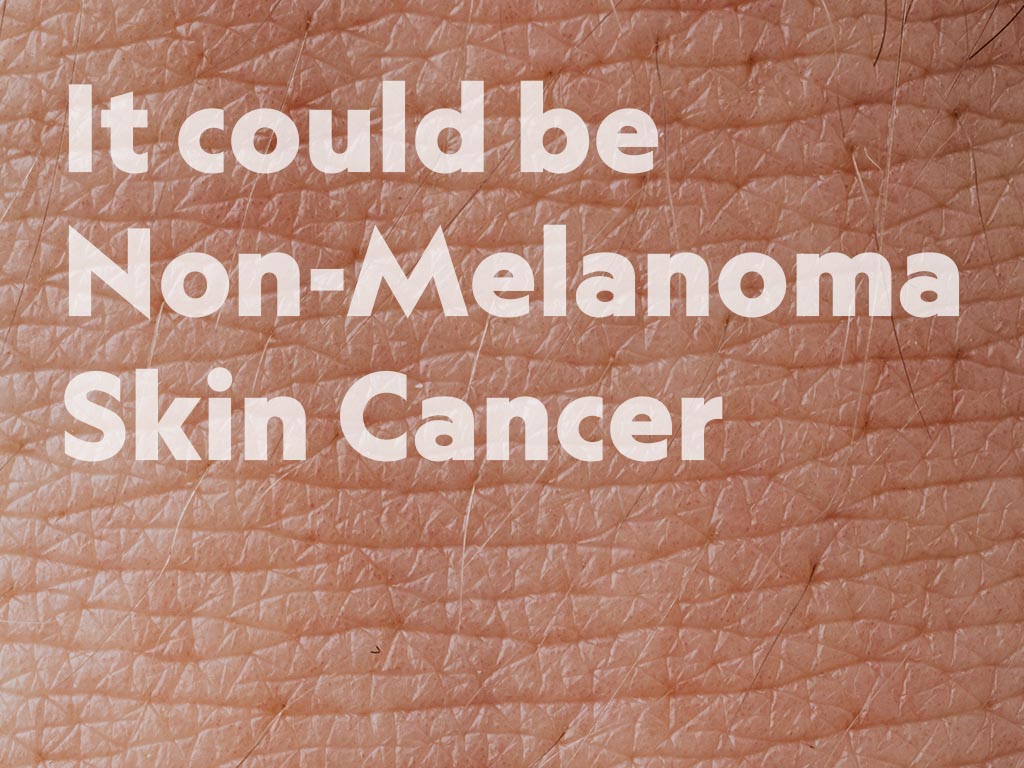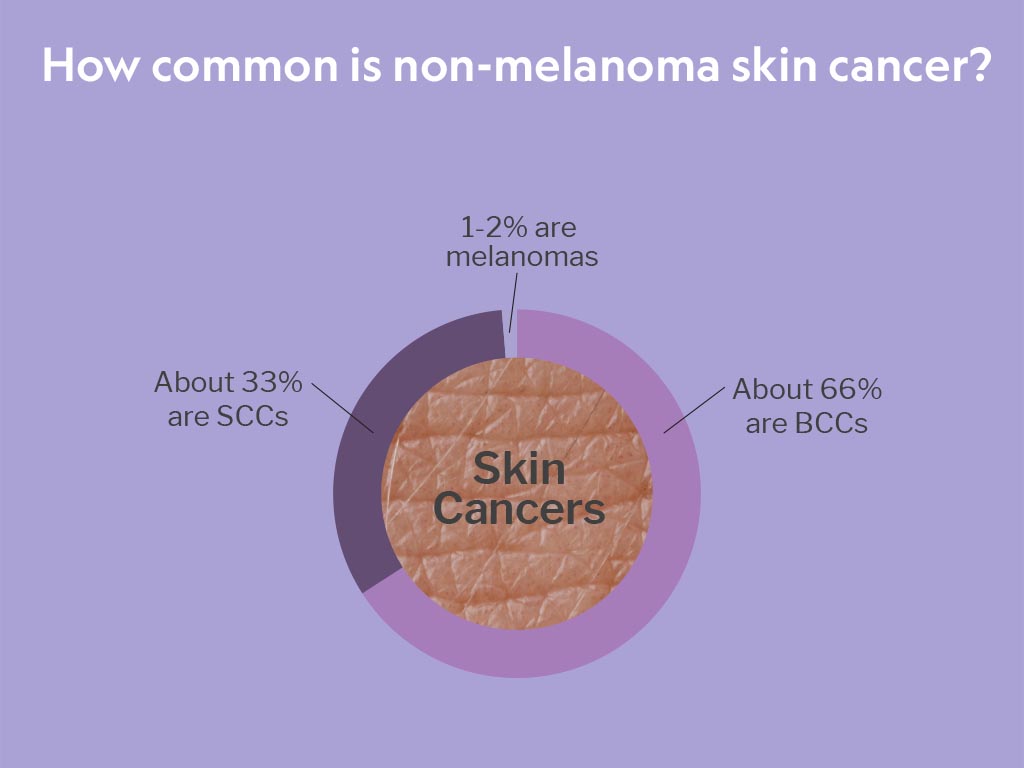It could be Non-Melanoma Skin Cancer

Learn more about non-melanoma skin cancer, the most commonly diagnosed cancer in Australia1,2
What is skin cancer?
Skin cancer is a disease that starts in the cells of your skin. Damage to your skin triggers these cells to change and grow out of control. The cells continue multiplying forming malignant (cancerous) tumours that can invade nearby areas and may even spread to other parts of the body.3
There are three main forms of skin cancer3:
- Basal cell carcinoma (BCC)
- Squamous cell carcinoma (SCC)
- Melanoma of the skin (melanoma)
- BCC and SCC are different from melanoma and are called non-melanoma skin cancers.
Non-melanoma skin cancer
The term ‘non-melanoma skin cancer’ refers to all skin cancers apart from melanoma.3 Most skin cancers diagnosed in Australia are non-melanoma skin cancers.4 BCC and SCC are the most common types of non-melanoma skin cancer.2,4 There are other forms of non-melanoma skin cancer, such as Merkel cell carcinoma and cutaneous lymphoma, which are much rarer and usually treated differently to BCC and SCC.3,4
Non-melanoma skin cancer is the most commonly diagnosed cancer in Australia1,2

Who is at risk?
Most non-melanoma skin cancers are caused by exposure to the sun (UV radiation). Factors that can increase the risk of developing skin cancer include4:
- How much time you spend outdoors in the sun or if you use sunbeds
- Your type of skin – such as having freckles, lots of moles or fair skin that burns easily
- Age – the older you are the more likely you are to develop non-melanoma skin cancer.
Treatment options for non-melanoma skin cancer
Most BCCs and SCCs can be successfully treated – particularly if they are detected early.
The treatment recommended by your dermatologist or other skin health specialist will depend on a number of factors including4:
- The type of cancer you have
- The size and location of the cancer lesion
- How deep into the skin it has penetrated
- Whether the cancer has spread to other parts of your body
- Your age, general health and any medications you are taking.
Treatment options4
- Surgery – this is the most common treatment used for BCC and SCC
- Topical treatments – creams or gels are applied directly to the affected areas of skin
- Photodynamic therapy – uses a combination of a cream and a laser or light source to destroy cancer cells
- Radiation therapy – here controlled doses of radiation (applied externally to the skin) are used to destroy the cancer cells. Different techniques and types of radiation can be used
- Epidermal radioisotope therapy is a precise, non-invasive application of rhenium-188.
Avion Medical Skin Centres are the specialist treatment providers of epidermal radioisotope therapy. This novel treatment option for non-melanoma skin cancers provides most patients with a painless, single session treatment option with improved cosmetic outcomes compared to conventional invasive treatments.5,6
References:
- Staples MP, et al. Med J Aust. 2006;184(1):6-10.
- International Agency for Research on Cancer. Data source: GLOBOCAN 2020. Graph production: Global Cancer Observatory. https://gco.iarc.fr/ (accessed July 2022).
- Ryder E. Skin Cancer. DermNet NZ. June 2017. https://dermnetnz.org/topics/skin-cancer (accessed July 2022).
- Cancer Council. Understanding Skin Cancer. December 2021. https://www.cancercouncil.com.au/skin-cancer/about-skin-cancer/#cell-types (accessed July 2022).
- Cipriani C, et al. J Dermatolog Treat. 2022;33(2):969-75.
- Sedda AF, et al. Clin Exp Dermatol. 2008;33(6):745-9.
